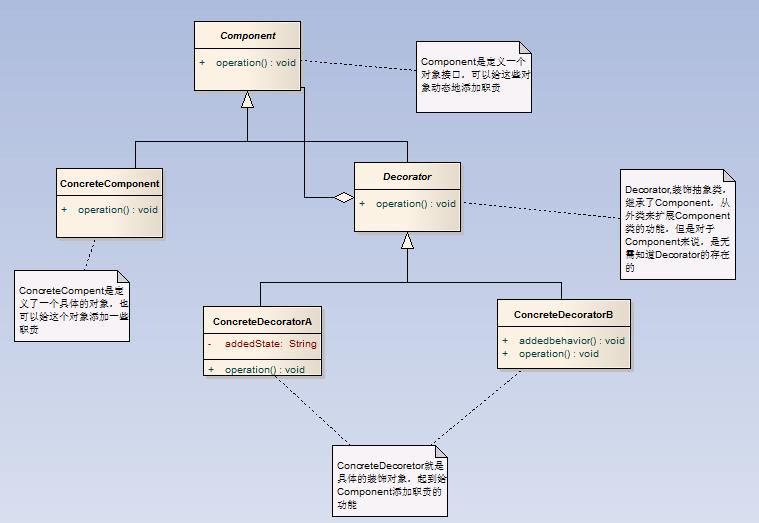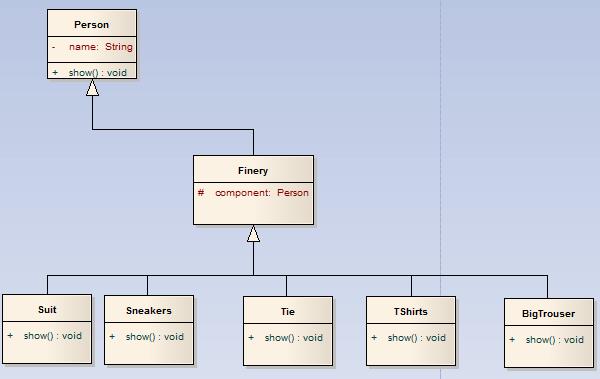装饰模式
Posted woniu4
tags:
篇首语:本文由小常识网(cha138.com)小编为大家整理,主要介绍了装饰模式相关的知识,希望对你有一定的参考价值。
装饰模式,动态地给一个对象添加一些额外的职责,就增加功能来说,装饰模式比生成子类更加灵活。【大话设计模式】
装饰模式的结构图如下:

个人认为,装饰即修饰,动态的给主类添加一些功能,而不需要修改主类的功能。
场景介绍
如大话模式一书中提到的穿衣的场景。
人即为一个主体,我们现在需要的是给其添加修饰的衣裳(如:西装、衬衫、皮鞋、T恤、短裤、运动鞋、运动裤、休闲裤等),当然,你也可以什么都不穿(裸奔的场景也是需要的)。
我们不可能在新增加了一种装饰之后,就增加所有可能的子类,这样逐渐会有无线多的类,当客户端去调用类时,比较麻烦,我们的系统也是很庞大,代码的复用性也不好。
通过装饰模式就可以做到动态的修饰人这个主体了。只需要根据自己想法动态调整自己的风格,不用拘束于现有的模式(风格的多样化)

代码实现:
主体类Person
public class Person { private String name; public Person() { } public Person(String name) { this.name = name; } public void show() { System.out.println("打扮的" + name); } }
修饰的服装类
public class Finery extends Person { private Person component; public Finery(Person component) { this.component = component; } public void show() { if(component != null) { component.show(); } } }
其他的装饰类
public class Suit extends Finery { public Suit(Person component) { super(component); } @Override public void show() { System.out.print("西装 "); super.show(); } }
public class Sneakers extends Finery { public Sneakers(Person component) { super(component); } @Override public void show() { System.out.print("皮鞋 "); super.show(); } }
其他的类似,不再一一列举;
客户端调用类
public class Client { public static void main(String[] args) { Person person = new Person("蜗牛"); Suit suit = new Suit(person); Sneakers sn = new Sneakers(suit); Tie tie = new Tie(sn); tie.show(); TShirts tShirts = new TShirts(person); BigTrouser bt = new BigTrouser(tShirts); bt.show(); } }
结果如下:
领带 皮鞋 西装 打扮的蜗牛
垮裤 T恤 打扮的蜗牛
以上是关于装饰模式的主要内容,如果未能解决你的问题,请参考以下文章